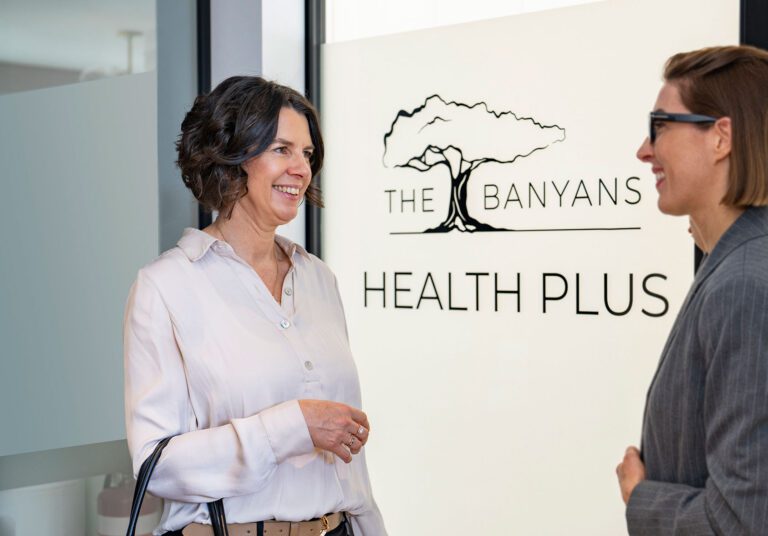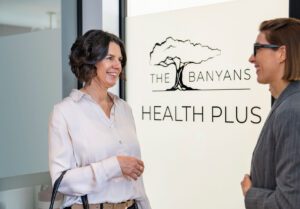
With a large disposable income, high stakes, long working hours and an intense social scene, it seems that cocaine is often the substance of choice for Australia’s wealthiest and most influential business executives.
The corporate culture of drug misuse is growing among C-level professionals – especially in the banking and finance sector, the construction field, the legal profession and Australia’s mining industry[i].
According to a report by The Daily Telegraph, one cocaine supplier admitted to spending most of his time in Sydney’s wealthiest eastern suburbs[ii], where the average income is $200,015 per year[iii]. Similarly, Sydney-based police are also noting a steady rise in drug-related incidents in the higher earning suburbs[iv].
Dr. Christian Rowan is an Addiction Specialist and the Medical Director at The Banyans Health and Wellness Residence. He attributes the particularly high prevalence of cocaine use[v] to its stimulating effects. “People often take cocaine over other drugs because it is perceived to be low risk, and effective for making you feel awake and energized.” Whether professionals are misusing the drug to increase their productivity or “let their hair down”, it is often the increased energy or release of tension that initially captures their attention.
Dr. Rowan also believes that cocaine’s reputation as a status symbol is also contributing to it being a drug of choice. “Because the substance [cocaine] is expensive to obtain, it carries a sense of glamour and elite exclusivity.” He relates it to being similar to purchasing an expensive bottle of wine at a restaurant.
However, Dr. Rowan highlights the inaccurate perception of cocaine being “less addictive” or “not as bad” as other illicit drugs. “Usually executives and business people are initially using cocaine recreationally in a social setting. Because of this, people may be unaware of their developing drug dependency.” With cocaine being widespread and prevalent within these elite circles, “social use” could still mean that people are using the substance multiple times a week[vi].
Reports published by The University of Sydney in 2013 conveyed similar observations.
Research suggested cocaine-users reporting significantly higher average incomes considered themselves “social users, rather than addicts”. These people were often misusing the drug in conjunction with alcohol.
In an article by The Sydney Morning Herald, one cocaine user confessed that cocaine was preferred over other drugs because of the very few physical symptoms or consequences, unlike methamphetamines or marijuana[viii]. However, Dr. Rowan explains that this notion is a misconception, and cocaine is just as harmful as any other drug. A dependency can develop after a very short period of use, and may go unrecognized for a long time[ix].
Common signs of cocaine use include disrupted sleeping patterns, erratic behavior and dramatic mood swings. Dr. Rowan suggests that behaviors associated with greater desperation to attain cocaine, or feeling unable to function without it, can lead to an increase in time or money spent in obtaining the drug. “In turn, this may lead to a deteriorating physical or psychological condition, a key indicator of a developing dependency or addiction.”
“Many of the individuals misusing cocaine in the C-Suite level of businesses are very intelligent, articulate people who are driven to achieve outcomes. These people may not even be aware of their dependency issues, as they will feel like they are keeping their head above the water, so to speak.” Dr. Rowan says that this can make it very difficult to approach a loved one or colleague who may be misusing cocaine.
Peter Hayton, the Clinical Director and Senior Psychologist at The Banyans Health and Wellness Residence has over twenty years of experience in the field, and explains that planning the conversation is one of the keys to success. “It is important that you consider some of the personality traits of your loved one or colleague, and how they might respond to your concerns.” He reminds people to try and approach the topic with as much gentleness and understanding as possible.
If you are concerned about a colleague, Peter notes that the workplace may not be the most effective environment to raise the issue.
“There is not a one-size-fits-all technique with these things. But often, it is necessary to involve their family and wider support network.”
The Banyans Health and Wellness Residence has an extensive team of medical and wellness professionals who are experienced in drug addiction recovery and rehabilitation. Dr. Rowan and Peter Hayton work alongside other professionals to help guests overcome their addictions and return to a healthy, balanced state of living. Dr. Rowan explains that this would entail complete abstinence, along with physical wellness, stabilised mood and healthy relationships.
These are the main goals of the tailored programs offered at The Banyans Health and Wellness Residence. Together with psychiatrists, counselors and psychologists, guests are able to work through a variety of underlying challenges and misconceptions that are limiting their ability to access the fullness of life. Guests partner with exercise physiologists, personal trainers and nutritionists to improve their physical wellness, including a diet and program. Onsite chefs, registered nurses, and wellness coaches also help you along your journey to make sure you achieve effective, long lasting results.
The medically supported program at The Banyans is a comprehensive, integrated approach to health and wellness that equips people with the skills they need to overcome their drug addiction and co-occurring conditions. If you think that a program like ours would benefit yourself or someone you care about, please do not hesitate to engage in a private, confidential discussion with The Banyans Health and Wellness Residence on +61 1300 BANYAN (1300 226 926) or complete an online form below.
[i] Lipari, R. and Bush, D. (2015). Substance Use and Substance Use Disorder by Industry. [online] Samhsa.gov. Available at: https://www.samhsa.gov/data/sites/default/files/report_1959/ShortReport-1959.html [Accessed 19 Feb. 2018].
[ii] Hills, B. (2014). Suburban and coke: Drug’s use rising. [online] Dailytelegraph.com.au. Available at: https://www.dailytelegraph.com.au/news/nsw/cocaine-is-becoming-one-of-sydneys-most-popular-drugs-with-drug-dealers-reaping-up-to-35000-a-week-from-users/news-story/c2962fb86bf935a30606fa61e5b1c7c1 [Accessed 19 Feb. 2018].
[iii] Ong, T. (2016). Sydney’s eastern suburbs house the nation’s top income earners. [online] ABC News. Available at: http://www.abc.net.au/news/2016-03-18/tax-office-report-shows-sydney-east-dominates-taxable-income/7258860 [Accessed 19 Feb. 2018].
[iv] Hills, B. (2014).
[v] Confirm Biosciences (2016). The Impact of Drug Abuse in the Construction Industry. [online] Confirm BioSciences. Available at: https://www.confirmbiosciences.com/knowledge/blog/industry-news-construction-industry-affected-drug-abuse/ [Accessed 8 Feb. 2018].
[vi] Hills, B. (2014).
[vii] Print, K. (2014). Social cocaine use more harmful than you think. [online] Sydney.edu.au. Available at: http://sydney.edu.au/news/84.html?newsstoryid=13410 [Accessed 23 Feb. 2018].
[viii] Meares, J. (2011). Score, Chop, Snort: Sydney’s cocaine blizzard. [online] The Sydney Morning Herald. Available at: http://www.smh.com.au/nsw/score-chop-snort-sydneys-cocaine-blizzard-20111025-1mhpt.html [Accessed 23 Feb. 2018].
[ix] Mediscreen. (2011). Snapshot of the Australian Cocaine User. [online] Available at: https://www.mediscreen.net.au/snapshot-of-the-australian-cocaine-user/ [Accessed 8 Feb. 2018].












